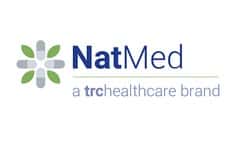Resveratrol is a natural antioxidant compound found in grape skins and other foods and widely available as a supplement. It is linked to body terrainthe internal conditions of your body, including nutritional status, fitness, blood sugar balance, hormone balance, inflammation and more that is less favorable to cancer growth and spread.
Safety and precautions
Increased cancer risk
Some sources caution patients with hormone-sensitive cancers about using resveratrol supplements based on animal studies in which resveratrol promoted tumor growth and proliferation in luminal B breast cancer subtype models1Andreani C, Bartolacci C et al. Resveratrol fuels HER2 and ERα-positive breast cancer behaving as proteasome inhibitor. Aging (Albany NY). 2017 Feb 26;9(2):508-523. and perhaps in other subtypes.2Bartolacci C, Andreani C, Amici A, Marchini C. Walking a tightrope: a perspective of resveratrol effects on breast cancer. Current Protein & Peptide Science. 2018;19(3):311-322. However, while resveratrol exhibits estrogen-like properties,3Gehm BD, McAndrews JM, Chien PY, Jameson JL. Resveratrol, a polyphenolic compound found in grapes and wine, is an agonist for the estrogen receptor. Proceedings of the National Academy of Sciences of the United States of America. 1997 Dec 9;94(25):14138-43. neither of its metabolites do, and so metabolized resveratrol from foods does not display estrogen-mimicking activity in the body.4Ruotolo R, Calani L et al. Anti-estrogenic activity of a human resveratrol metabolite. Nutrition, Metabolism and Cardiovascular Diseases. 2013 Nov;23(11):1086-92. In fact, some integrative oncology clinicians suggest using resveratrol supplements in some estrogen-influenced cancers, such as uterine cancer.5Alschuler LN, Gazella KA. The Definitive Guide to Cancer, 3rd Edition: An Integrative Approach to Prevention, Treatment, and Healing. Berkeley, California: Celestial Arts. 2010.
Side effects or adverse events
Resveratrol is generally well tolerated,6Boocock DJ, Faust GE. Phase I dose escalation pharmacokinetic study in healthy volunteers of resveratrol, a potential cancer chemopreventive agent. Cancer Epidemiology, Biomarkers & Prevention. 2007 Jun;16(6):1246-52. although high doses can cause mild to severe side effects. Side effects reported in studies include these,7Popat R, Plesner T et al. A phase 2 study of SRT501 (resveratrol) with bortezomib for patients with relapsed and or refractory multiple myeloma. British Journal of Haematology. 2013 Mar;160(5):714-7; la Porte C, Voduc N et al. Steady-State pharmacokinetics and tolerability of trans-resveratrol 2000 mg twice daily with food, quercetin and alcohol (ethanol) in healthy human subjects. Clinical Pharmacokinetics. 2010 Jul;49(7):449-54. especially at higher doses:8Brown VA, Patel KR et al. Repeat dose study of the cancer chemopreventive agent resveratrol in healthy volunteers: safety, pharmacokinetics, and effect on the insulin-like growth factor axis. Cancer Research. 2010 Nov 15;70(22):9003-11.
- Gastrointestinal symptoms: nausea, diarrhea, and vomiting
- Blood-related side effects: anemia and thrombocytopenia
- Fatigue
- Infections
- Renal failure
High doses (1000 mg) of resveratrol may increase the levels of biomarkers indicating risk of cardiovascular disease in overweight older adults.9Mankowski RT, You L et al. Higher dose of resveratrol elevated cardiovascular disease risk biomarker levels in overweight older adults—a pilot study. Experimental Gerontology. 2020 Mar;131:110821.
One analysis found a weak trendan apparent change due to a therapy, close to but not achieving full statistical significance (this is the CancerChoices definition; other researchers and studies may define this differently toward higher blood glucose (HbA1c) but no evidence of an effectoverall, one or more studies did not demonstrate that a treatment or intervention led to an expected outcome; this does not always mean that there is no effect in clinical practice, but that the studies may have been underpowered (too few participants) or poorly designed. Larger, well-designed studies provide more confidence in making assessments. on fasting blood glucose levels or insulin resistancea condition in which cells in your muscles, fat, and liver don’t respond well to insulin and can’t efficiently take up glucose from your blood for energy among people with type 2 diabetes treated with resveratrol for 4 to 5 weeks compared to placeboa pill, medicine, or procedure—thought to be both harmless and ineffective—prescribed for the psychological benefit to the patient or as a sham treatment in a study to allow a comparison to a therapy of interest. The authors state that HbA1c results should be interpreted cautiously due to the short follow-up.10Jeyaraman MM, Al-Yousif NSH et al. Resveratrol for adults with type 2 diabetes mellitus. Cochrane Database of Systematic Reviews. 2020;1(1):CD011919.
Interactions with other medications
Because resveratrol may inhibit enzymes that are necessary to metabolize some drugs,11Chen ZH, Hurh YJ et al. Resveratrol inhibits TCDD-induced expression of CYP1A1 and CYP1B1 and catechol estrogen-mediated oxidative DNA damage in cultured human mammary epithelial cells. Carcinogenesis. Oct 2004;25(10):2005-2013; Liu J, Wang Q et al. Differential regulation of CYP1A1 and CYP1B1 expression in resveratrol-treated human medulloblastoma cells. Neuroscience Letters. Jun 17 2004;363(3):257-261. it may interact with the function and safety of those drugs. People who are taking any prescription medications should seek the advice of their physicians before using resveratrol.
Do not use (contraindications)
Resveratrol should not be used in conjunction with a few prescription drugs, including antiplatelet drugs, cytochrome P450 substrates, and carbamazepine. Patients using any of these medications should consult a medical professional before using resveratrol.
Helpful link
Keep reading about resveratrol
Learn more
References

